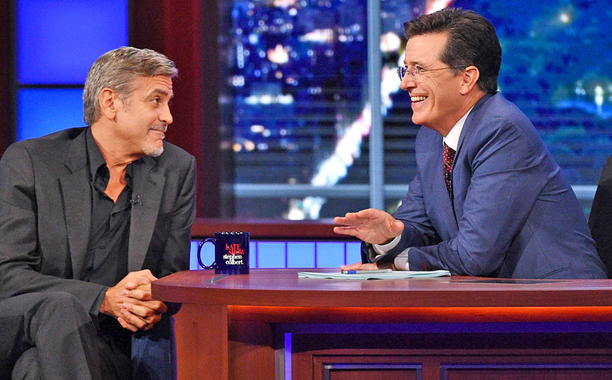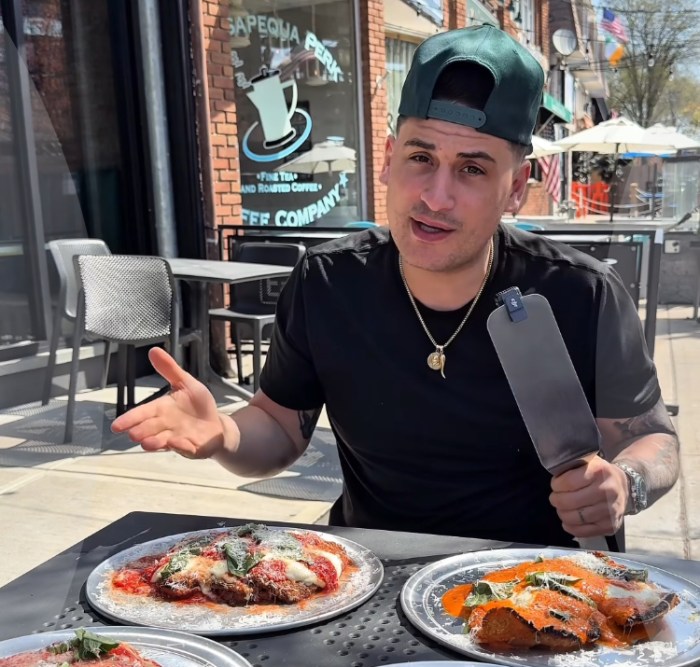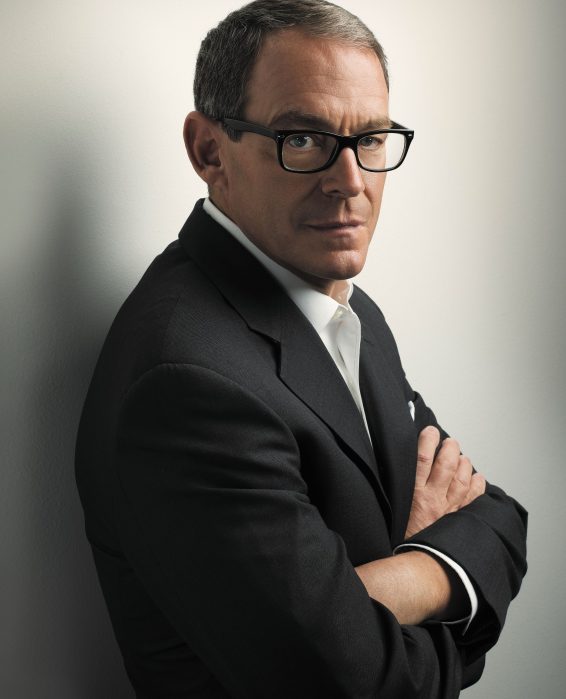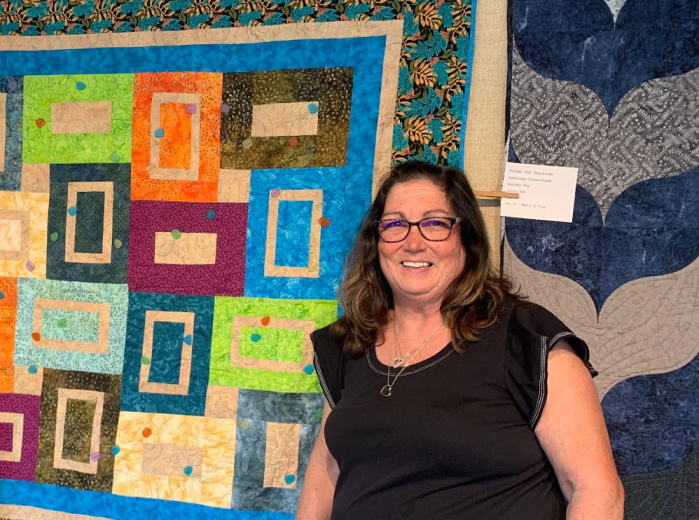At 11:35 p.m. Tuesday on CBS, in a recently remodeled Ed Sullivan Theater, a rambunctious audience rallied a chant not shouted since December.
“STEPHEN! STEPHEN! STEPHEN!”
It’s the rallying cry of a nation – the Colbert Nation, specifically. The nation’s leader, dressed in a blue suit and polka dot tie, ex-Colbert Report host and famed TV personality Stephen Colbert returned to the silver screen on his new gig, The Late Show with Stephen Colbert.
“With this show, I begin to search for the real Stephen Colbert,” he said in a standard opening monologue. “I just hope I don’t find him on Ashley Madison.”
It’s that same kind of goofiness everyone missed that added to a night – a day, really – audiences won’t soon forget.
Earlier on Tuesday, before the show’s daytime New York City-themed opening credits rolled, random pedestrians were handed free celebratory Col’ Brews – a custom cold-brewed coffee featuring Colbert’s face. This was a clever and friendly tactic of CBS, determined to herd all eyes to the premiere, even if that meant caffeinating everyone past their bedtimes.
If the coffee failed, The Late Show’s new band, Stay Human, kept the energy alive each segment. Bandleader John Batiste paraded, sang and clapped around the set playing a piano with his signature melodica to catchy beats that he labeled as “social music.” It really was just that. The mix of jazz, soul and R&B was friendly, spirited and well received by the audience. Performing “Everyday People” – a song by Sly and the Family Stone known for its message of social equality and acceptance – was a curious choice, too.
After the opening monologue, the show transitioned to the now iconic image of Colbert behind a desk. His new late-night desk, that is, which Colbert assured everyone was, “carved out of a single piece of desk.”
George Clooney was first to sit opposite Colbert. Celebrity interviews are typical of talk shows, and learning about the actor’s recent marriage and under-appreciated Darfur activism was interesting, but Jeb Bush’s appearance stole the attention. Not because anyone was particularly excited to see the Republican presidential candidate, but rather to witness Colbert’s post-Report approach to politics at his new home at CBS. We knew Colbert would drop the conservative act he presented on Comedy Central, but when he compared watching Donald Trump to the guilty pleasure of gorging on Oreos, Colbert seemed to suggest that he and politics are inseparable.
The conversation with Jeb was nowhere near as aggressive as it would have been on The Colbert Report. Not as aggressive but not merciful, either.
“Could you take a moment to tell the American people why you want to be president of the United States?” he asked.
“Do you think you could bring people together?” Colbert pressed. “Because everyone says they want to bring people together, but when you get down to the campaigning or get down to what passes for governing, it often ends up being just a game of blood sport. And the other side can’t possibly do, say, or plan for anything good.”
“Without in any way diminishing your love for your brother, in what ways do you politically differ from your brother George [W. Bush]?”
Absent of sarcasm (okay, maybe that last question was a little sarcastic) and no insults to the conservative Republican’s intelligence or logic, the questions were serious but sincere, and rightfully so for a presidential runner. And that’s the extent of Colbert’s new interview approach: occasional humor minus a political agenda. The Late Show’s Youtube channel also uploaded a deleted clip of Jeb’s response to gun control.
Jeb Bush provided some lengthy and arguably generalized and vague answers, even (sort of) complimented Obama at one point, but there was a mutual respect between Jeb and Colbert. No heated debates, no tension. Just two differing individuals, and Jeb mirrored the benevolence.
“I’m just here to see you,” he said, “and I think that’s why everyone else is here.” And the audience agreed.
Colbert tried to fight the reality, of course. “He’s the guest, not me!”
In a sense, Colbert was a guest. Maybe to no one’s surprise, the real man of the hour was none other than the host himself.
“Who is the real Stephen Colbert?” was the generalized media gossip that mystified Colbert after retiring his right-wing persona.
Evidently, the man partially responsible for turning young heads to politics is – and always was – just a guy trying to make you laugh. The kind of guy who plasters his smiling face on bottles, promotes fake movie clips for celebrities, and playfully trolls politicians. Colbert genuinely wants to entertain while integrating his political beliefs into his nightly program, and that’s the most significant and unique aspect he’ll use to compete with his fellow late-night hosts in the years to come.
The curtains closed 12 minutes after the show’s normal end time of 12:37 a.m. with a level of audience enthusiasm matched only by The Colbert Report and, in hindsight, Stephen Colbert’s entire career.
































